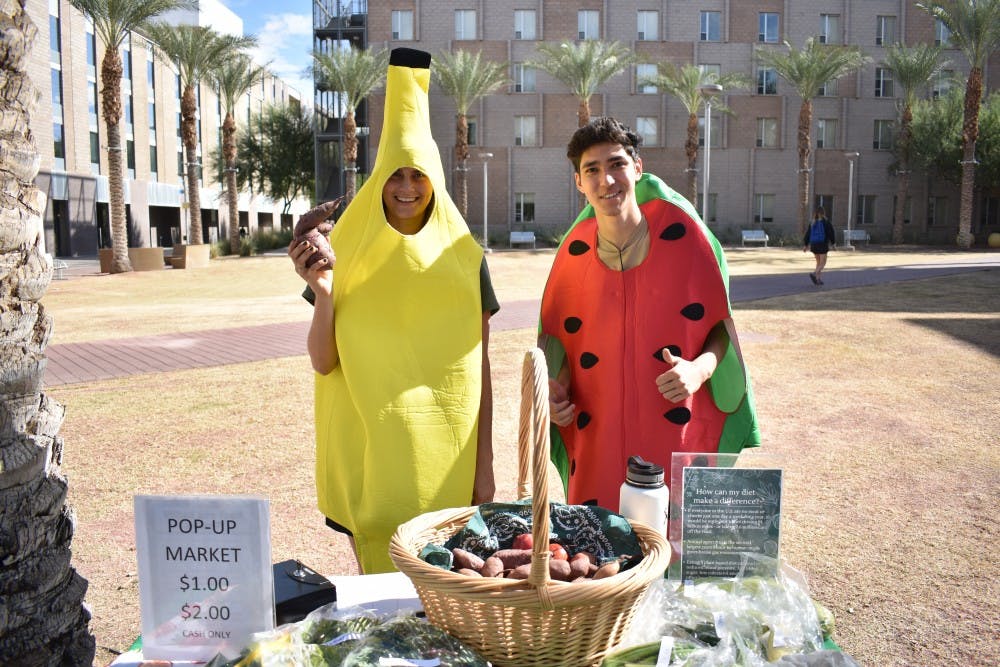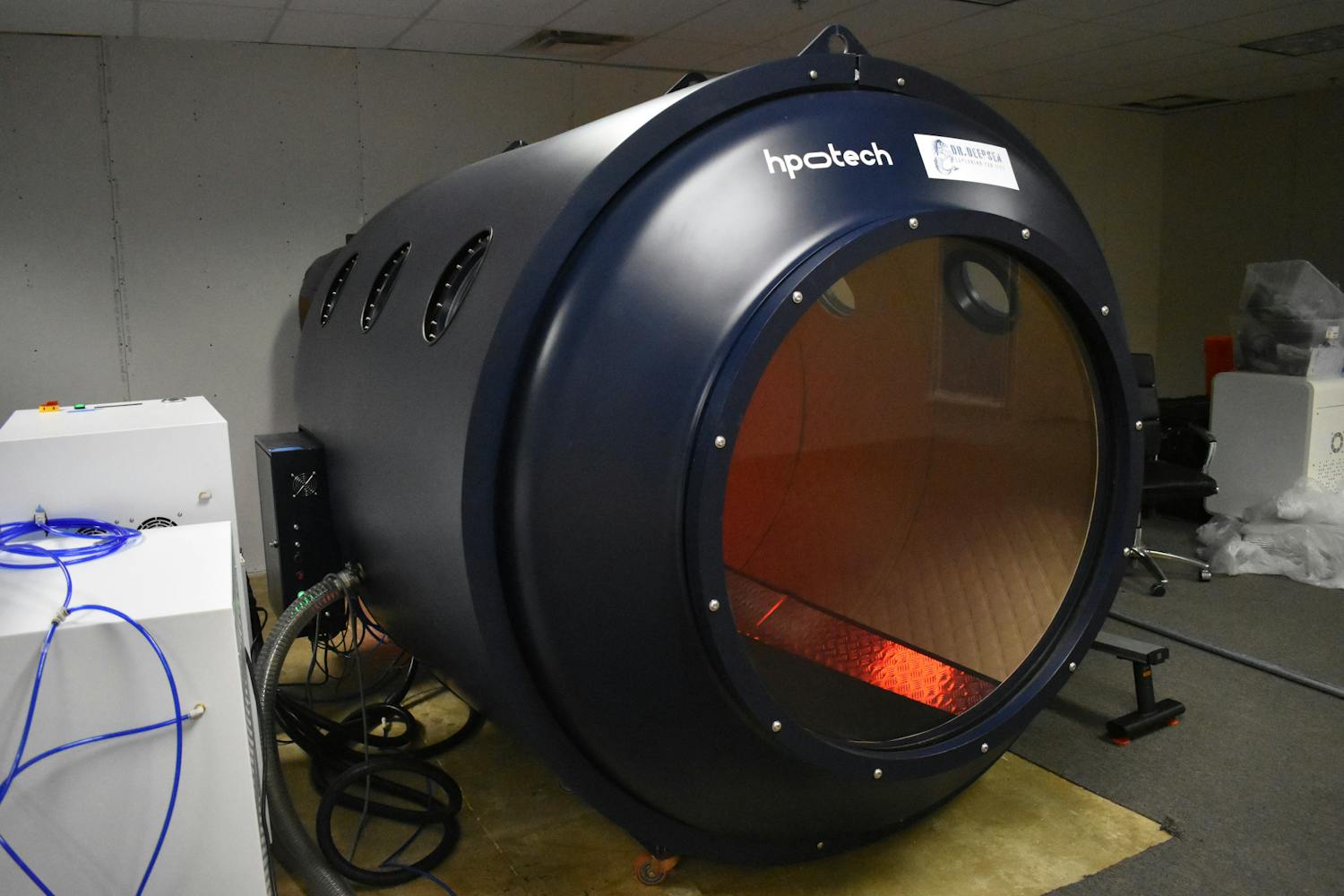If the weather is good enough on any given Thursday, ASU’s Tempe campus hosts Fresh and Local, a farmer's market where ASU and local growers can sell their produce.
Growers from the Poly Community Garden and other ASU growers reach out to the community as part of Fresh and Local.
The Poly Community Garden is comprised of 12 small plots of land on ASU’s Polytechnic campus, leased out to students and staff to spotlight nutrition. The garden is also used as an educational tool by biology classes, and some of the food grown there is donated to food banks.
Deborah Thirkhill, an ASU program coordinator for the Campus Harvest program, said Fresh and Local is good way to improve community relations and promote ASU’s sustainability efforts.
Thirkill was selling dry palm fruits grown on the Tempe campus at Fresh and Local on Nov. 1.
Palm fruits are one several types of trees grown on the Tempe campus. The palm fruits are harvested in October to be sold, and are also donated to food banks as well as to the Islamic Community Center of Tempe.
“They (the Islamic Community Center) give them to the needy," Thirkill said. "It's more embedded in their culture. Dry palms are a good source of nutrition, especially in the desert."
In addition to selling their produce, the Poly Community Garden walks attendees through do-it-yourself projects like building hummingbird feeders or making air fresheners.
“Part of the goal of the Fresh and Local Market is to provide fresh and local food to students,” Hannah Lira, an ASU senior studying sustainability, said.
While the events are usually on Thursdays, Fresh and Local recently held a pop-up market on Halloween as a smaller extension of the market to support Campus Sustainability Month.
The food grown at the Poly Garden is organic, meaning the growers don’t use pesticides or herbicides in the growing process, and the growers use organic fertilizers like composts.
“I think it’s important to grow organic in a residential setting, because you're assured that you're producing the healthiest food for yourself and for others,” Susan Norton, program manager for ASU’s University Sustainability Practices program, said.
Norton said that the long-term effects of using pesticides and other chemicals is heavily debated with evidence showing both pros and cons.
“At least if we don’t use these chemicals, we know for sure that we’re trying to provide ourselves with with pure, healthy food,” Norton said.
Norton said it is more practical to apply organic growing practices in small-scale gardens. She also said she recognizes that it will take a long time for large farms to adopt the practice. However, she said she is glad that some medium and large farms are making efforts to grow organically.
Norton said growing organically locally is feasible, because “it doesn’t take any more effort to grow organically than to use synthetic chemical and fertilizers in our community gardens or in our backyards.”
Reach the reporter at jicazare@asu.edu or follow @sonic_429 on Twitter.
Like State Press on Facebook and follow @statepress on Twitter.




